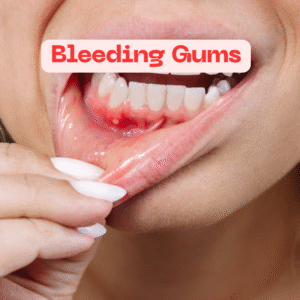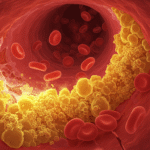Have you ever experienced strange symptoms like skin tags, restless legs, or brittle nails and wondered what’s really causing them? The truth is, many common health issues are actually signs of nutrient deficiencies. Instead of just treating the symptoms, we need to address the root cause—missing vitamins and minerals.
In this article, we’ll explore 18 surprising signs that your body is lacking essential nutrients, backed by science, and provide natural solutions to fix them.
1. Skin Tags: A Blood Sugar Warning
Those small, harmless skin growths may indicate high blood sugar levels—often linked to pre-diabetes or diabetes. Research shows that elevated blood sugar (A1C above 5.7) can trigger skin tags.
Do This For Blood Sugar:
- Reduce sugar and refined carbs.
- Increase high-quality protein (meat, eggs).
- Get an A1C test to monitor blood sugar.
- Studies suggest type 2 diabetes can be reversed in under 10 weeks with dietary changes.
2. Itchy Skin (Especially at Night): Fungal Overgrowth
If you’re constantly itching, especially in private areas, you may have a fungal (Candida) overgrowth. This happens when good bacteria are wiped out (often by antibiotics or steroids), allowing yeast to thrive.
Do This For Itchy Skin:
- Cut out sugar (yeast feeds on it).
- Take probiotics to restore gut balance.
- Vitamin D helps reduce itching by boosting immunity.
3. Restless Leg Syndrome: Low Vitamin B1 (Thiamine)
That annoying urge to move your legs at night? It could be due to lactic acid buildup from a vitamin B1 deficiency.
Do This For Restless Leg Syndrome :
- Take B1 (thiamine) + magnesium (they work together).
- Reduce sugar and refined carbs (they deplete B1).
4. Tingling in Hands/Feet: Nerve Damage (B1 Deficiency)
Numbness or tingling in extremities is common in diabetics or those eating too many carbs, which deplete B vitamins.
Do This For Tingling in Hands/Feet :
- Take benfotiamine (a form of B1)—studies show it helps nerve repair.
5. Bleeding Gums: Vitamin C Deficiency

Bleeding gums are an early sign of scurvy (severe vitamin C deficiency). Sugar blocks vitamin C absorption, weakening blood vessels.
Do This For Bleeding Gums:
- Eat bell peppers, kiwis, citrus fruits.
- Avoid synthetic vitamin C (ascorbic acid)—opt for whole-food sources.
6. Chronic Cough: Calcium or Acid Reflux Issue
A persistent cough could mean:
- Low calcium (if spasms occur).
- Acid reflux (if burning sensation is present).
Do This For Chronic Cough:
- For acid reflux: Take betaine HCl (stomach acid support).
- For spasms: Eat calcium-rich foods like cheese.
7. Carpal Tunnel Syndrome: Vitamin B6 Deficiency
Swelling and nerve compression in the wrist often stem from low B6, which helps reduce inflammation.
Do This For Carpal Tunnel Syndrome :
- Take P5P (active B6)—especially helpful for pregnant women.
8. Brittle Nails: Biotin Deficiency
Weak, splitting nails? Biotin (B7) strengthens keratin, the protein in nails and hair.
Do This For Brittle Nails:
- Take biotin supplements or eat eggs, salmon, and nuts.
The French Fry Diabetes Link: Why Preparation Matters More Than the Potato Itself
9. Cold Hands & Feet: Iodine Deficiency
Poor circulation and cold extremities may indicate low thyroid function due to iodine deficiency.
Do This For Cold Hands & Feet
- Eat seafood, seaweed, or take iodine drops.
10. Morning Cramps/Headaches: Magnesium Deficiency
Leg cramps, migraines, or even chest pain in the early morning? Magnesium levels drop overnight, leading to spasms.
Do This For Morning Cramps/Headaches
- Take magnesium glycinate before bed.
11. Stomach Ulcers: Zinc Deficiency
Zinc helps heal the gut lining. Ulcers and gastritis often improve with zinc carnosine.
Do This For Stomach Ulcers
- Take zinc carnosine for gut repair.
12. Nosebleeds: Low Vitamin K1 or C
Frequent nosebleeds? You may need:
- Vitamin K1 (for clotting).
- Vitamin C (to strengthen blood vessels).
Do This For Nosebleeds
- Eat leafy greens (K1) and citrus fruits (C).
13. Chest Pain (Heart-Related): Vitamin E Deficiency
Vitamin E improves oxygen flow to the heart. Heart-related pain may indicate low vitamin E.
Do This For Chest Pain
- Take tocotrienols (a potent form of vitamin E).
14. Bumps on Back of Arms: Vitamin A Deficiency
Those rough “chicken skin” bumps? Retinol (animal-based vitamin A) deficiency is the culprit.
Do This For Bumps on Back of Arms:
- Eat liver, egg yolks, or take cod liver oil.
15. Fatigue & Weakness: Low Sodium
Feeling drained? Low sodium (not salt fear!) causes fatigue and muscle weakness.
Do This For Fatigue & Weakness:
- Add sea salt or Himalayan salt to meals.
16. Low Libido: Zinc Deficiency
Zinc is crucial for hormone production. Low levels can kill sex drive.
Do This For Low Libido:
- Take 50mg zinc daily (reduce after symptoms improve).
17. Dry, Scaly Skin: Omega-3 Deficiency
Too much omega-6 (seed oils) and not enough omega-3 (fish oil) leads to dry skin.
Do This For Dry, Scaly Skin:
- Eat salmon, sardines, or take cod liver oil.
18. White Spots on Nails: Zinc Deficiency
Those little white dots? Classic zinc deficiency, often worsened by sugar.
Do This For White Spots on Nails:
- Take zinc supplements and reduce sugar intake.
Final Thoughts
Many health issues are not random—they’re your body’s cry for nutrients. Instead of masking symptoms with medications, fix the root cause with the right foods and supplements.
Want to prevent deficiencies before they start? Focus on a nutrient-dense diet (meat, eggs, seafood, leafy greens) and cut processed sugars.
Did you recognize any of these signs in yourself? Share in the comments—let’s help each other heal naturally!







No comment yet, add your voice below!